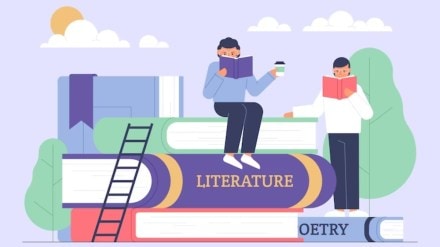By Amandeep S.Kochar
Books have long been acknowledged to be valuable resources for encouraging creativity and knowledge expansion. Beyond reading itself, books have an unparalleled ability to foster creativity and motivate readers to become creators themselves. This transformational process can be ascribed to a number of things, such as the exploration of diverse and inclusive perspectives, the development of critical thinking abilities, and the stimulation of creative thinking. Especially considering the onset of digital libraries and e-books, accessing literature is easier than ever.
Books are a marvel of creativity and their contribution to almost every aspect of our lives cannot possibly be quantified. We can, however, explore the ways in which they aid the artist within us to reach our absolute potential; let’s go!
Exploring diverse perspectives
Reading a book can open the imagination to a plethora of cultures, universes, and experiences. Exploring a variety of narratives allows readers to develop empathy and expand their perspective beyond their own lived reality. People are compelled to ponder their perceptions and confront preconceived notions as they immerse themselves in various characters, situations, and traditions.
Reading literary fiction can boost empathy and enhance social cognition, according to a study published in the journal Science. Fictional literature helps readers comprehend complex feelings and empathise with characters, which empowers them to respond to real-life circumstances with heightened sensitivity and creativity.
Development of critical thinking skills
According to an Organisation for Economic Co-operation and Development (OECD) report, frequent readers have greater critical thinking skill levels. Delving into the world of literature enriches a person’s critical thinking skills by offering challenging ideas, ethical problems, and dispute resolution. Readers are urged to think analytically and weigh multiple points of view to draw their own conclusions through intersectional interpretation, boosting analytical reasoning and problem-solving skills.
Enhancing creative thinking
Readers can explore their own ideas and maximise their creative potential in a vibrant imaginary world built on rich narratives, multifaceted plots, and captivating characters. A study published in the Creativity Research Journal reveals a positive relationship between reading fiction and creative thinking. The study found that exposure to fictional narratives stimulated participants’ imaginative thinking and enabled them to generate more original ideas. Books ignite the flame of imagination by transporting readers to imaginary realms, allowing them to envision new possibilities and inspire creativity.
Inspiration and motivation
Books are a great source of inspiration for aspiring creators. Readers with a knack for writing can gain insight into different art forms, genres, and techniques by reading alone. Successful creators’ biographies and memoirs provide valuable counsel and inspire people to pursue their own artistic endeavours. According to a National Endowment for the Arts in the US poll, those who read for enjoyment are more likely to engage in creative pursuits like writing, drawing, or playing an instrument. Books can inspire people to discover their creative abilities and express themselves in original ways.
At a glance: Passionate readers evolve into inspired artists
Books can change readers from passive consumers of information into active creators by helping them develop critical thinking abilities, stimulating creativity, and providing inspiration. As readers set out on their creative journeys, they actively participate in influencing their immediate environment with their newfound awareness and ingenious outlook.
So, what are you waiting for? Take up a book and unleash the creator inside of you.
The author is president, Group CEO at Baker & Taylor Group of Companies. Views are personal.
